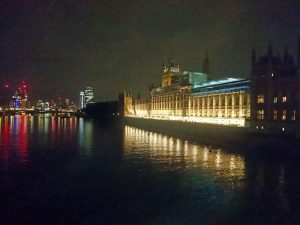This project involved a number of colleagues from the School of Social and Political Sciences (see, for example, https://parliamentsandlegislatures.wordpress.com/2015/08/12/parliamentary-scrutiny-evidence-and-policy/). It drew on case studies of three major pieces of legislation (the National Minimum Wage Act 1998, the Academies Act 2010, and the Welfare Reform and Work Act 2016 to do consider the use of evidence in the scrutiny process and what this might tell us about how ‘success’ and ‘failure’ might be judged. In addition to having been presented at a variety of conferences, such as Political Studies Association and Social Policy Association annual conferences, and the Study or Parliament Group, this work has been published in The Journal of Legislative Studies. It suggests that while there might be potential benefits from a more robust legislative scrutiny process, including greater use of pre-legislative scrut iny and the ability of public bill committees to take evidence from a wider range of witnesses, and on all bills, including those introduced in the House of Lords, subject and political factors would be likely to mean that the use of claims of evidence would continue to vary widely. A second article, in Policy Studies, contributes to the literature on measuring success and failure, noting that with regard to legislation, identifying ‘targets’, ‘aims’ and ‘processes’ can help in making judgements about the relative success of a policy.
iny and the ability of public bill committees to take evidence from a wider range of witnesses, and on all bills, including those introduced in the House of Lords, subject and political factors would be likely to mean that the use of claims of evidence would continue to vary widely. A second article, in Policy Studies, contributes to the literature on measuring success and failure, noting that with regard to legislation, identifying ‘targets’, ‘aims’ and ‘processes’ can help in making judgements about the relative success of a policy.
You must be logged in to post a comment.